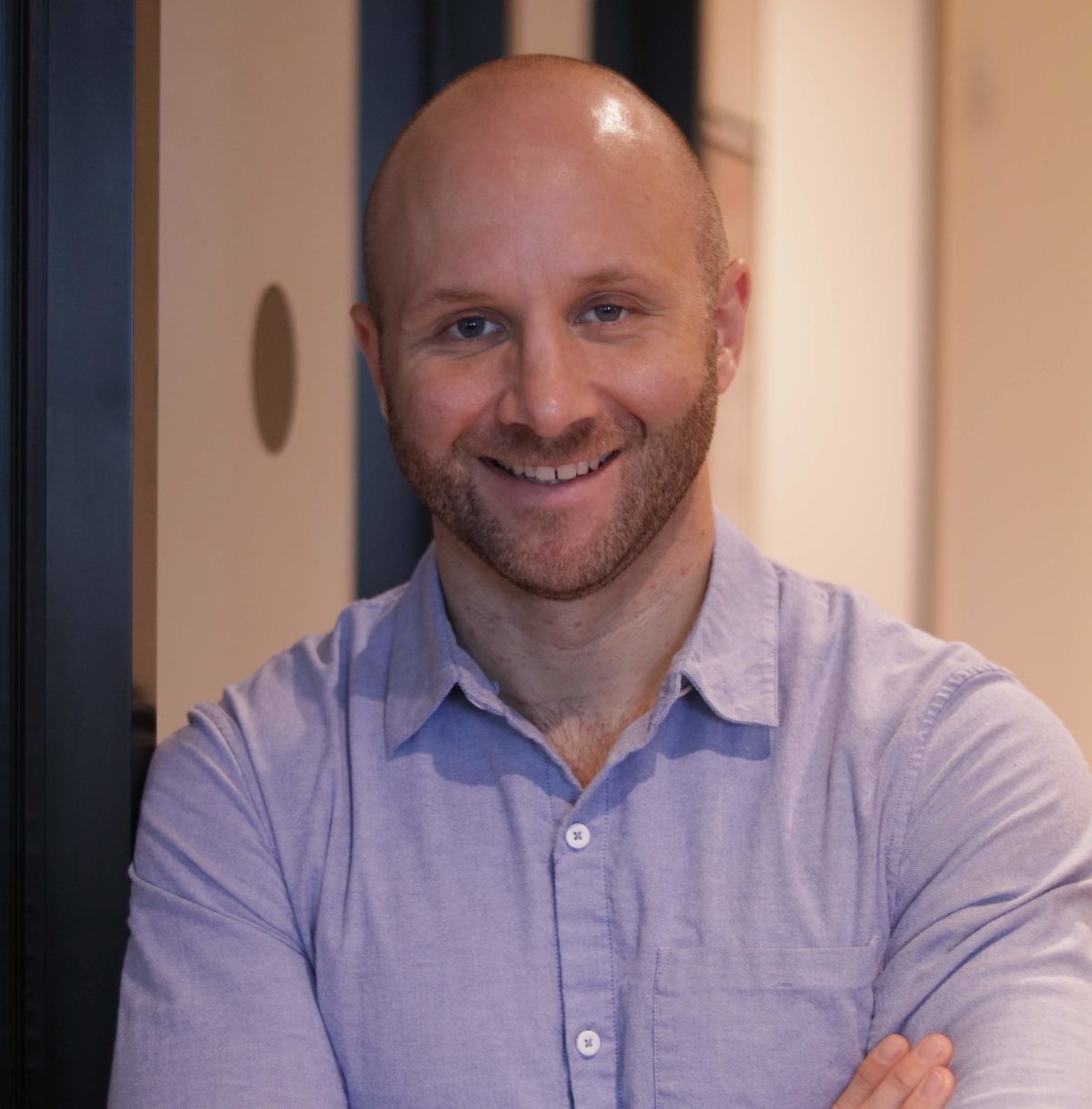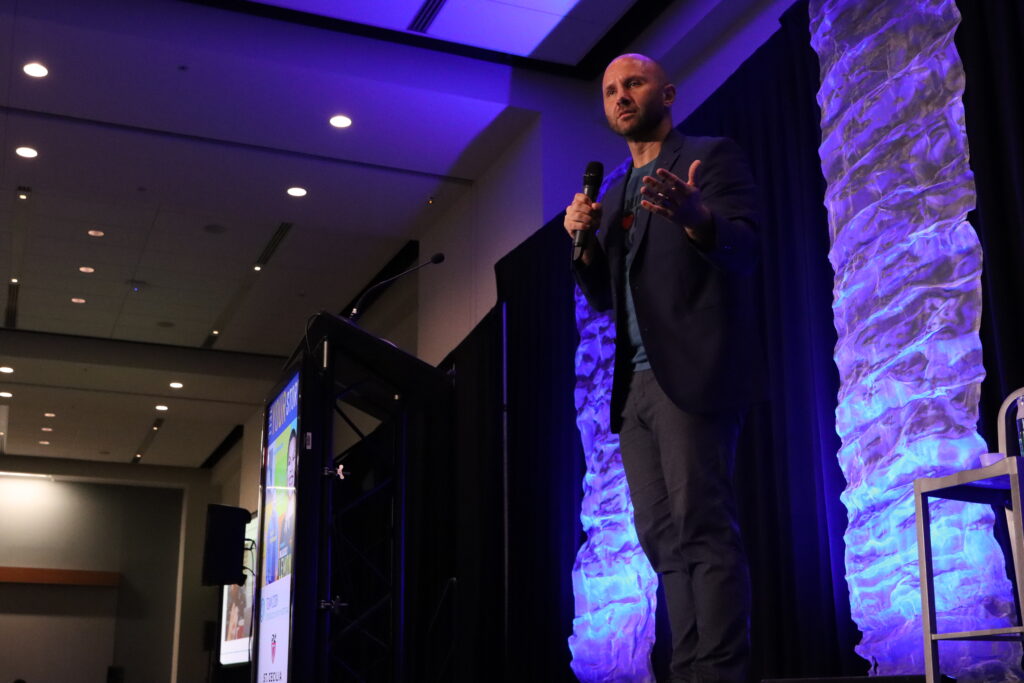Last week I gave my speech at the Middle Tennessee REALTORS® Convention. The theme for the whole event was “Tell Your Story,” so if you know my work, you know why I was there.
But, this was the first time I had talked about this aspect of storytelling.
The other speakers talked about the stories we tell others—our marketing messages, mainly. I talked about the stories we tell ourselves. You know… those little lies we hold in the back of our heads that keep us from performing to our potential.
The name of my speech was “Turn Your Tragic Flaw into Your Superpower” and it was all about how we can reframe our perspectives when obstacles hit, and find the opportunity within them.
At one point, I used a quick video from one of my favorite authors, Simon Sinek. He was talking about how the brain functions better when converting perspectives to the affirmative, but often we tend to focus on only the negative (i.e. the obstacles).
He gave an example: “Skiers know this. Have you ever seen skiers go through trees? Do you know how they do that? It’s actually surprisingly easy. If you go through trees on skis and you go ‘Don’t hit a tree. Don’t hit a tree. Don’t hit a tree.’ then guess what you’re watching? You’re only looking at trees! All you’re seeing is trees and you don’t understand how anyone is supposed to ski with all these trees. As opposed to, ‘Follow the snow, follow the path.’ The only thing you’ll see is the path. If you say “Don’t hit a tree.’ you’ll hit a tree. It’s the same thing with you. If you focus on the obstacles, all you will see is the obstacles.”
As humans, we have many complex emotions, but as you study them more you realize they are rooted in just a few base emotions. And if you look further, you find that at the end of the day, they tend to always track back to just two primitive psychological drivers.
We respond to whether something will seemingly cause us pain or pleasure—i.e. will it help us or hurt us?
And out of those two, much data shows that we are wired to focus on what might hurt us or cause us pain, most likely deriving from our primitive survival instincts.
This theory is known as “loss aversion.”
When you operate from a scarcity mindset like this, however, you can do more damage than you’re actually protecting yourself from by potential opportunity loss.
Squeezing something too tightly can often cause it to slip from your hands.
I invited a woman on stage to demonstrate an exercise my old boxing instructor showed me.
Dee was her name, and she was a fitness enthusiast who happily volunteered when I asked, “Who in here thinks they’re strong?”
I told her to hold her hand up, elbow bent 90 degrees, like she’s flexing her bicep. I was going to try to pull her arm down to her side and she was to resist me.
The first time, I asked her to clench the fist that she held in the air.
When I pulled on her arm, one leg lifted up and she almost toppled over, losing her balance.
The next time, I told her to hold her hand open.
I pulled on her arm again with the same amount of pressure. She barely moved.
See, boxers aren’t sitting there in the ring with their hands clenched tightly waiting to swing with all their might. That’s what novices do who get in a street fight, and that’s why they only last 30 seconds or so at best.
Professional boxers actually have their hands open and loose, as they bob and weave around, waiting for the right opportunity to open up. When it does, they strike, and finally clench their hands right before the moment of impact, capitalizing on the power only then, and not wasting it before the right moment reveals itself.
If you squeeze your hands tightly, it weakens the rest of your body. Your hands will eventually drop, too heavy to hold, and you will lose your opportunity to be on the offensive.
Instead, stay loose, stay open, and always stay focused on the path.
 Rain Bennett is a two-time Emmy-nominated filmmaker, writer, and competitive storyteller with over a decade of experience producing documentary films that focus on health and wellness. His mission is simple: to make the world happier and healthier by sharing stories of change.
Rain Bennett is a two-time Emmy-nominated filmmaker, writer, and competitive storyteller with over a decade of experience producing documentary films that focus on health and wellness. His mission is simple: to make the world happier and healthier by sharing stories of change.
You can read the rest of “Right as Rain” here, and check back every Wednesday on Chapelboro for a new column!


